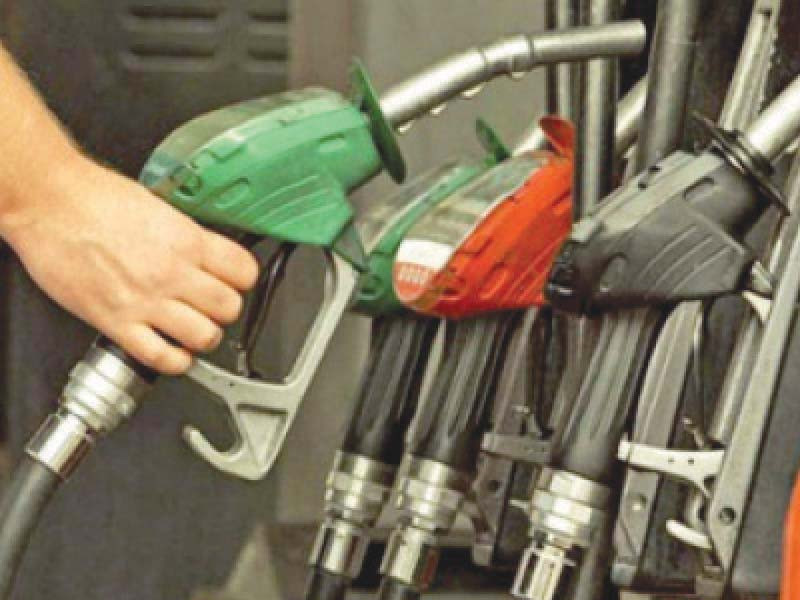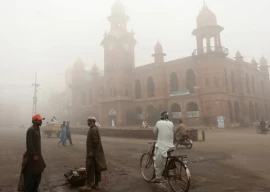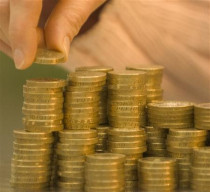
The latest increase in fuel prices threatens to flare up inflation and consumers’ tempers while damaging the political capital of the ruling party.
In many countries, fuel prices move in tandem with the international crude oil prices, but in some like Pakistan successive governments have found it tough to raise prices. With inflation climbing to 13.37% in April, the decision to increase petrol and diesel prices becomes all the more difficult.
Earlier this year, Pakistan didn’t just freeze fuel prices, it also went against the global trends. At the end of February, former prime minister Imran Khan directed the authorities to reduce petrol and diesel prices by Rs10 per litre each and ordered a price freeze until the passing of the new budget.
In March, as Pakistani commuters filled their vehicle tanks with slightly cheaper fuels, the Brent oil price in the international market climbed from $105 to $113 per barrel, while briefly touching a 13-year high of almost $130 per barrel.
Since then, the crude oil has largely remained in the $100-$120 range, but the Pakistani rupee’s value against the US dollar weakened by 13%. The commodity, which is priced in the greenback, became even more expensive for the Pakistani buyers.
Meanwhile, the PTI government got voted out and on April 11, PML-N’s Shehbaz Sharif took oath as the prime minister.
A new government took office and the crude oil became dearer but fuel prices at petrol pumps across Pakistan remained unchanged, until late May. That’s put an unnecessary burden on the economy in general and petroleum companies in particular.
Oil marketing companies (OMCs) and oil refineries have been buying crude oil and refined products at expensive rates from the international markets. They then sell the petroleum products at a deep discount in the domestic market, as directed by the government.
The government then reimburses the energy companies by settling the price difference – called the price differential claim (PDC) – at a later date.
PDC is essentially a subsidy that the government pays to keep pump prices low. The latest price increase has reduced the PDC, but it hasn’t been eliminated.
The cash-strapped government has so far reportedly accumulated a whopping Rs214 billion in PDC for the March-May period, of which less than half has been transferred to PSO for clearing dues of OMCs and refineries.
This has weighed heavily on the fiscal balance and may cause a big cut in the Public Sector Development Programme (PSDP).
For the petroleum companies, the PDC creates severe cash flow problems and working capital constraints. This could not only hamper their day-to-day operations, but also their ability to make timely purchases of crude oil.
In the US, where prices are determined largely by market forces, the retail price of petrol has gone up by almost 25% from $3.69 to $4.60 per gallon in the last three months, as per the national average calculated by Gas Buddy.
Remember, the US is one of the richest countries in the world and the largest non-OPEC oil producer that pumped 11.3 million barrels per day of crude oil in February, the latest data from the US Energy Information Administration (EIA) shows.
Unlike the US, Pakistan neither has the financial muscle nor does it produce noteworthy quantities of crude oil. Yet it has spent hundreds of billions of rupees on keeping oil prices constant.
This lopsided approach that has hurt the economy is the result of years of politicisation of oil prices. Virtually all political parties have used petrol and diesel rates as a tool to attack their opponents.
Crude oil prices are not expected to ease in the international market any time soon. Rather, analysts at Goldman Sachs believe that they may climb to $150 a barrel this year.
This may force Pakistan to completely end fuel subsidies and jack up pump prices. Although price hikes will anger many, at this juncture, it is critical that the subject of fuel prices is depoliticised.
From the ordinary citizens to bureaucrats to legislators, everyone must get a better understanding of the global energy market and Pakistan’s role in it as a price-taker.
The ruling class, in particular, must end the point-scoring game and concentrate on educating the public about this key issue.
Deregulation is an effective way through which the topic of fuel prices can be depoliticised. Under the current system, pump prices for the next fortnight are determined by the government which, as we have seen, can cause numerous problems.
Prices are often detached from ground realities, which creates imbalances and imperfections in the domestic market and hurts the entire energy sector.
Besides, by getting itself involved in determining pump prices, the government also sets the stage for political backlash.
However, in a deregulated regime, the principles of supply and demand, as well as sector participants, play a greater role. Fuel prices could be set by an autonomous body on a real-time basis based on key factors, such as the landed cost of commodities.
Petroleum companies will use those prices as a benchmark to set their own prices. The government, meanwhile, focuses on collecting levies and taxes.
In a deregulated market, any policy that goes against the principles of free market competition, such as the Inland Freight Equalisation Margin (IFEM), lucrative quotas for getting domestic oil production, and favourable financing terms awarded to certain companies, should be scrapped.
Instead, all oil refiners and OMCs must be provided a level playing field and should compete freely with each other.
This creates an environment of free and fair competition in which the inefficient and rent-seeking energy companies are pushed out while those who provide the highest quality products at attractive prices capture the market share.
The regulator plays a proactive role and ensures the energy companies don’t exploit consumers.
More importantly, in a free market, the consumer becomes the king. By buying fuels only from those OMCs that provide the best products at attractive prices while avoiding others, the consumer gets to decide the fate of energy companies.
Free competition can potentially transform Pakistan’s energy sector, fuelling its growth and making it far more productive. Moreover, it can take politics out of the petrol and diesel price equation.
The writer focuses on subjects of business and economics, specialising in the energy sector
Published in The Express Tribune, May 30th, 2022.
Like Business on Facebook, follow @TribuneBiz on Twitter to stay informed and join in the conversation.

1731907834-0/Jonathan-Majors-and-Meagan-Good-(2)1731907834-0-405x300.webp)
1731906859-0/Jonathan-Majors-and-Meagan-Good-(1)1731906859-0-165x106.webp)

1724657897-0/Untitled-design-(2)1724657897-0-165x106.webp)





1731884290-0/image-(9)1731884290-0-270x192.webp)







COMMENTS
Comments are moderated and generally will be posted if they are on-topic and not abusive.
For more information, please see our Comments FAQ